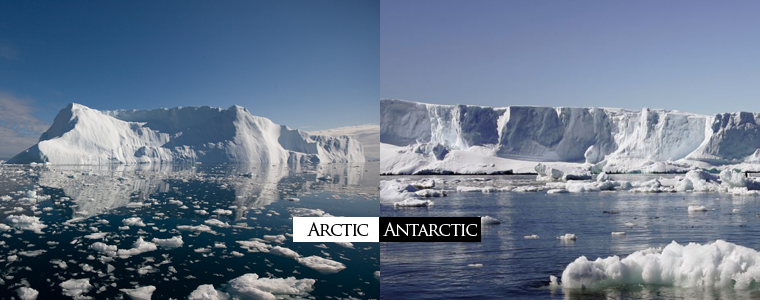It seems like a paradox: polar sea ice cover is both shrinking and growing. The eight lowest ice covers on record have now occurred in the past eight years. Yet the extent of sea ice has hit a record high, causing some to say that we “have more ice than ever” and reason to doubt global warming is happening.
The confusion can be blamed on two different geographies and a complex system that scientists are working to understand. There’s a reason we have the idiom “polar opposites!” This week, researchers have been debating the polar sea-ice opposites at a conference in London.
Scientists say that even though the past two years have been reasonably “normal” since a major dip in 2012, Arctic sea ice has been on a downward trend the past three decades, while Antarctic sea ice has been hitting record levels.
So do the two poles cancel each other out for net sea ice change? Far from it, according to researchers such as Dr Paul Holland who works with the British Antarctic Survey (BAS). The Antarctic sea-ice cover (or extent) increase is going up by about 20% of the speed that the Artic is going down. More importantly, the volume of Antarctic sea ice is going up by about only 10% of the speed that Arctic volume is going down.
Less volume means thinner ice which is more prone to breaking up and melting, causing rising seas and increased global warming from having less white ice to reflect the sun’s rays.
What’s going on in the Antarctic is a bit of a mystery that scientists can’t yet fully explain. Changes in winds, particularly the polar vortex that swirls around the continent are one hypothesis, possibly due to climate change.
This polar opposite sea ice “paradox” is a critical piece of the global warming puzzle, in part because the evidence of sea ice increasing seems to conflict with the concept of a warming planet. Yet many of our greatest scientific discoveries have come from forcing and analyzing apparent paradoxes. They’re like brain teasers that curious minds feel compelled to solve.
There’s little debate about the facts on ice levels. The challenge is that the complexity of our climate system makes it difficult to pinpoint why change is happening and what exact impacts we can expect.



